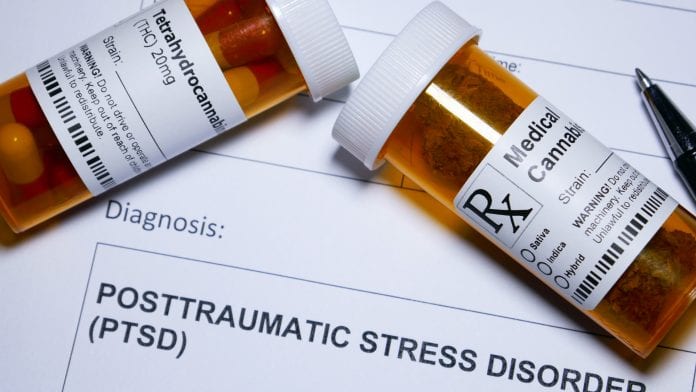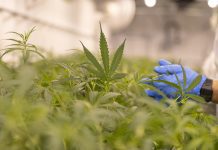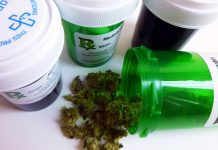
Since the legalisation of cannabis for medical use in America and a number of other countries, more and more people are turning to cannabis to treat symptoms of PTSD.
A new UCL study, however, reports that more research is needed to determine whether it should be routine clinical practise to prescribe it as a treatment for PTSD.
The systematic review, published in the Journal of Dual Diagnosis, found that the active components of cannabis, called cannabinoids, may hold promise as a treatment for PTSD, particularly for reducing nightmares and helping people sleep.
Potential of cannabis to treat PTSD
The study’s lead author, Dr Chandni Hindocha (UCL Clinical Psychopharmacology Unit), said: “There has been a recent surge of interest in the use of cannabinoids to treat PTSD, particularly from military veterans, many of whom are already self-medicating or obtaining prescriptions in some American states.
“The lack of evidence supporting cannabis as a PTSD treatment is striking given the vast interest in it, and the large unmet need for better PTSD treatments”.
Both THC and CBD may be helpful at treating PTSD as they can change how the brain processes memories by acting on the brain’s in-built endocannabinoid system, which also regulates other brain functions that are affected by PTSD.
The researchers say there are still many unanswered questions about the safety and efficacy of cannabis-based medications for PTSD, and potential long-term effects such as addiction or a risk of psychosis.
The existing evidence shows promise, however, as some studies showed that cannabis products appeared to reduce PTSD symptoms such as insomnia and nightmares.
More research is needed
The study’s senior author, Dr Michael Bloomfield of UCL Psychiatry and the Traumatic Stress Clinic, St Pancras Hospital, said: “Based on the evidence, we cannot yet make any clinical recommendations about using cannabinoids to treat PTSD. Current prescribing of cannabinoids for PTSD is not backed up by high quality evidence, but the findings certainly highlight the need for more research, particularly long-term clinical trials.
“Many of these studies have been conducted in military veterans, but we also need to be looking at other groups, as PTSD can vary depending on the nature of the trauma so different approaches may benefit different groups”.
Dr Hindocha added: “Unfortunately, medicinal uses of cannabis have historically been difficult to study due to legal restrictions, so it could take a long time before there is enough evidence to support clinical recommendations. New approaches are needed to make the most of existing evidence in the meantime.”
What is PTSD?
PTSD can be a debilitating condition and currently impact around 1% of the UK population, typically consisting of re-experiencing a traumatic event through intrusive memories, flashbacks or nightmares, and often involves hyper-reactivity (a state of constant vigilance) and insomnia.
The study was conducted by researchers at UCL and the University of Amsterdam and was supported by the National Institute for Health Research UCLH Biomedical Research Centre.


















